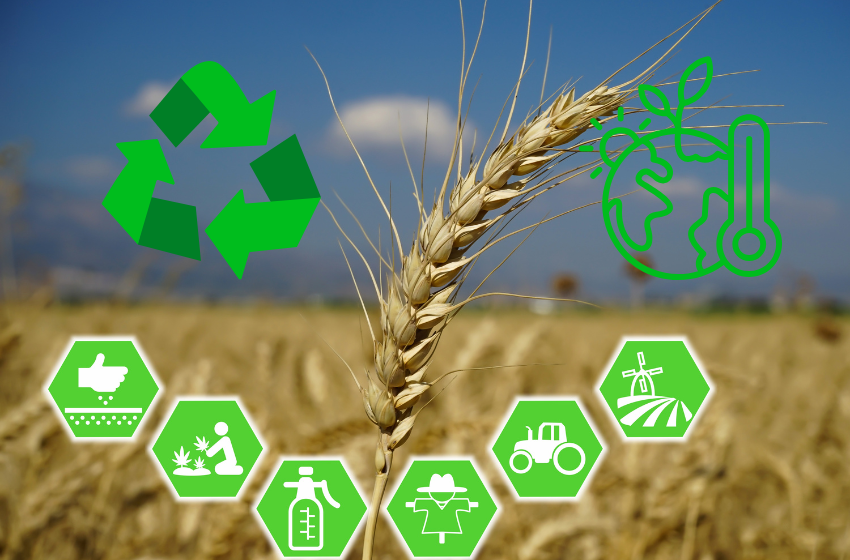
Sindh SWAT Program to Promote Climate-Smart Farming
The government launched the Sindh SWAT Program to modernize farming practices, improve crop yields, and address water scarcity challenges in the province.The initiative is part of a broader plan to ensure food security and protect farmers from the impact of climate change.
What is the Sindh SWAT Program?
The Sindh Agriculture Department introduced the Sindh Water and Agriculture Transformation (SWAT) Program under the Climate-Smart Agriculture Project. Agriculture Minister Sardar Muhammad Bux Mahar announced that the project will run until 2028 and aims to train thousands of farmers in advanced techniques.
The key focus areas include:
- Increasing crop yields.
- Reducing pest damage.
- Saving water through smart irrigation methods.
- Supporting farmers with subsidies to adopt modern practices.
Training Farmers for the Future
The program will set up 180 field schools across Sindh and train around 4,500 farmers over five years. In the first phase, 750 farmers are being trained this year. Demonstration plots have already been established in Sukkur, Mirpurkhas, and Badin districts.
Some of the modern farming methods being introduced include:
- Laser land levelling for efficient irrigation.
- Row planting of wheat to increase yields.
- Balanced fertilizer use for healthier crops.
- Zero-tillage farming, which uses leftover soil moisture after harvesting rice to grow wheat without extra water.
According to experts, these practices will not only cut costs but also conserve water and protect the environment.
Why Climate-Smart Agriculture Matters?
Minister Mahar emphasized that climate change is one of the biggest threats to Pakistan’s agriculture. Erratic weather, rising temperatures, and water shortages have already reduced productivity and caused financial losses to farmers.
He added that the Sindh government has prepared a comprehensive plan to deal with these challenges. By introducing climate-smart farming, the province hopes to protect its agriculture sector and improve food security.
Sindh SWAT Program Backed by Global Partners
The Climate-Smart Agriculture initiative was first introduced in Pakistan at the University of Agriculture, Faisalabad, in 2024. It is supported by the United States and the World Bank, which are providing both funding and technical expertise.
Under this partnership, Sindh will benefit from international best practices and access to advanced technologies that improve crop resilience against climate shocks.
Financial Support for Farmers
The SWAT Program will also provide smart subsidies to farmers who complete their training. These subsidies are designed to encourage the adoption of high-value, water-efficient crops instead of traditional, water-intensive ones.
By replacing outdated irrigation practices with modern systems, the program aims to help farmers earn “more rupees per drop.” This means higher income with less use of water, which is vital for a province already facing severe water stress.
Building on Past Success
The Sindh government has already implemented several projects in collaboration with the World Bank, such as the Sindh Agriculture Growth Project and the Sindh Irrigated Agriculture Productivity Enhancement Project.
The SWAT Program builds on these experiences and introduces new reforms, including:
- Integrated water resource management.
- Value chain development for farmers.
- Policy reforms aligned with the National Water Policy 2018 and Sindh Agriculture Policy 2018–2030.
Boosting Sindh’s Rural Economy
Agriculture is the backbone of Sindh’s economy, providing livelihoods to millions of people. However, outdated practices, water scarcity, and environmental degradation have slowed growth.
By adopting climate-smart methods, the SWAT Program aims to:
- Increase agricultural productivity.
- Reduce poverty and malnutrition in rural areas.
- Create new job opportunities in food production, processing, and supply chains.
- Make Sindh’s agriculture more competitive in local and global markets.
Sindh SWAT Program: A Step Toward Food Security
With Pakistan already facing serious challenges in food and water security, the SWAT Program is a timely initiative. It not only supports farmers but also contributes to the national vision of sustainable agriculture under Pakistan Vision 2025.
If implemented successfully, Sindh could become a model for other provinces and help Pakistan strengthen its agricultural resilience.
Long-Term Investment in Climate-Smart Farming
The Sindh SWAT Program is more than a training project—it is a long-term investment in climate-smart farming, water conservation, and food security. By modernizing practices and empowering farmers, Sindh is taking a bold step to protect its agriculture sector from climate change while ensuring better livelihoods for its rural communities.









